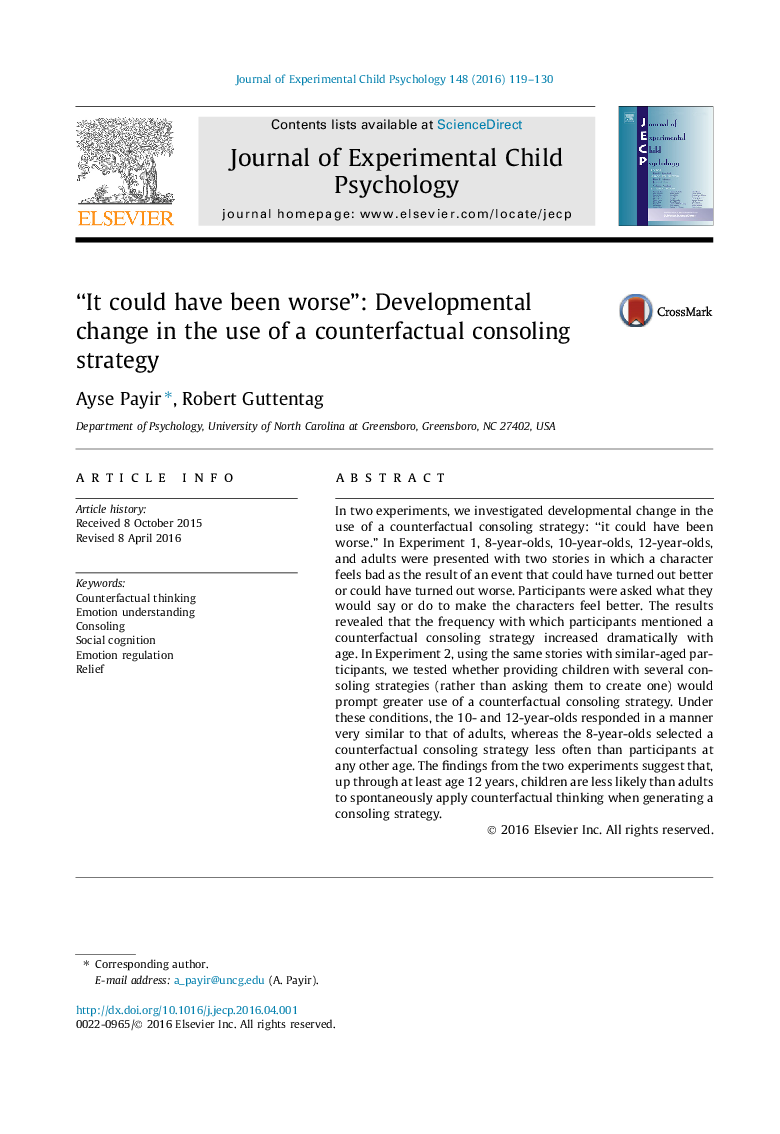| Article ID | Journal | Published Year | Pages | File Type |
|---|---|---|---|---|
| 7274683 | Journal of Experimental Child Psychology | 2016 | 12 Pages |
Abstract
In two experiments, we investigated developmental change in the use of a counterfactual consoling strategy: “it could have been worse.” In Experiment 1, 8-year-olds, 10-year-olds, 12-year-olds, and adults were presented with two stories in which a character feels bad as the result of an event that could have turned out better or could have turned out worse. Participants were asked what they would say or do to make the characters feel better. The results revealed that the frequency with which participants mentioned a counterfactual consoling strategy increased dramatically with age. In Experiment 2, using the same stories with similar-aged participants, we tested whether providing children with several consoling strategies (rather than asking them to create one) would prompt greater use of a counterfactual consoling strategy. Under these conditions, the 10- and 12-year-olds responded in a manner very similar to that of adults, whereas the 8-year-olds selected a counterfactual consoling strategy less often than participants at any other age. The findings from the two experiments suggest that, up through at least age 12Â years, children are less likely than adults to spontaneously apply counterfactual thinking when generating a consoling strategy.
Related Topics
Social Sciences and Humanities
Psychology
Developmental and Educational Psychology
Authors
Ayse Payir, Robert Guttentag,
